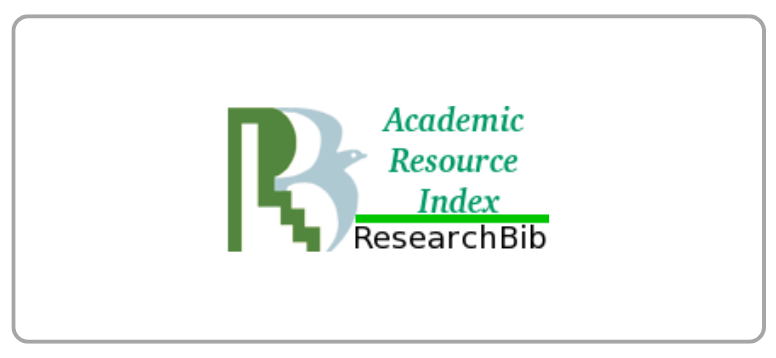The Impact of Self-Esteem and Internet Use on Academic Performance
DOI:
https://doi.org/10.21512/comtech.v8i1.3780Keywords:
academic performance, self-esteem, Internet useAbstract
The students’ academic performance is one of important evaluation factors in accreditation. It is interesting to explore the factors which give impact to the academic achievement or performance. This research put academic performance as the research problem. Since this research was combining two disciplines: information systems (IS) and educational management (EM), it set Internet Use (representing IS) and self-esteem (representing EM) as factors impacting the academic performance. Moreover, this research used the quantitative method. Based on the quantitative research model, the research used primary data collected from students of ABFI Institute of Perbanas, Jakarta. The data was calculated using a statistical tool called SPSS. The descriptive statistics was also applied to describe the variables, and regression technique was for describing the relationship between the variables. After analyzing the data, the research finds that self-esteem affects the academic performance significantly and positively, but the Internet use does not impact the academic performance significantly.
Plum Analytics
References
Abdi, M., Yasavoli, H. M., & Yasavoli, M. M. (2015). Assessment of structural model to explain life satisfaction and academic achievement based on parenting styles. Procedia-Social and Behavioral Sciences, 182, 668–672. http://doi.org/10.1016/j. sbspro.2015.04.806
Al-Qahtani, M. F. (2015). Associations between approaches to study, the learning environment, and academic achievement. Journal of Taibah University Medical Sciences, 10(1), 56–65. http://doi.org/10.1016/j. jtumed.2015.01.014
Aziz, M. N. A. & Ahmad, N. S. (2008). Kemahiran belajar dan hubungannya dengan pencapaian akademik: (The relationship between learning skills and students academic achievement: A study in the district of Kerian, Perak). Pendidik dan Pendidikan, 23, 29–47.
Badan Akreditasi Nasional Perguruan Tinggi. (2008). Buku V pedoman penilaian akreditasi program studi sarjana. Jakarta: Badan Akreditasi Nasional Perguruan Tinggi.
Baumeister, R. F., Campbell, J. D., Krueger, J. I., & Vohs, K. D. (2003). Does high self-esteem cause better performance, interpersonal success, happiness, or healthier lifestyles?. Psychological science in the public interest, 4(1), 1-44.
Chen, S., & Fu, Y. (2009). Internet use and academic achievement: gender differences in early adolescence. Adolescence, 44(176), 797-812.
Crowe, T. V. (2002). Translation of the Rosenberg Self-esteem Scale into American sign language: A principal components analysis. Social Work Research, 26(1), 57-63.
Goreyshi, M. K., Kargar, F. R., Noohi, S., & Ajilchi, B. (2013). Effect of combined mastery-cooperative learning on emotional intelligence, self-esteem and academic achievement in grade skipping. Procedia-Social and Behavioral Sciences, 84, 470-474. http:// doi.org/10.1016/j.sbspro.2013.06.586
Hamjah, S. H., Rozali, E. A., Rasit, R. M., & Ismail, Z. (2012). The relationship between spiritual practice and student’s academic performance. Universiti Kebangsaan Malaysia, Malaysia, 4(2), 51-60.
Hunley, S. A., Evans, J. H., Delgado-Hachey, M., Krise, J., Rich, T., & Schell, C. (2005). Adolescent computer use and academic achievement. Adolescence, 40(158), 307-318.
Jackson, L. A., Von Eye, A., Biocca, F. A., Barbatsis, G., Zhao, Y., & Fitzgerald, H. E. (2006). Does home Internet use influence the academic performance of low-income children? Developmental Psychology, 42(3), 429-35. http://doi.org/10.1037/0012-1649.42.3.429
Jenaabadi, H. (2014). Studying the relation between emotional intelligence and self esteem with academic achievement. Procedia - Social and Behavioral Sciences, 114(2004), 203-206. http://doi. org/10.1016/j.sbspro.2013.12.685
Kirschner, P. A., & Karpinski, A. C. (2010). Facebook® and academic performance. Computers in Human Behavior, 26(6), 1237-1245. http://doi.org/10.1016/j. chb.2010.03.024
Marcela, V. (2015). Learning Strategy, personality traits and academic achievement of university students. Procedia-Social and Behavioral Sciences, 174, 3473– 3478. http://doi.org/10.1016/j.sbspro.2015.01.1021
Martin, G., Richardson, A. S., Bergen, H. A., Roeger, L., & Allison, S. (2005). Perceived academic performance, self-esteem and locus of control as indicators of need for assessment of adolescent suicide risk: implications for teachers. Journal of Adolescence, 28(1), 75-87. http://doi.org/10.1016/j. adolescence.2004.04.005
McKenzie, K., & Schweitzer, R. (2001). Who succeeds at university? Factors predicting academic performance in first year Australian university students. Higher Education Research & Development, 20(1), 21-33. http://doi.org/10.1080/07924360120043621
Omar, N., Mohamad, M. M., & Paimin, A. N. (2015). Dimension of learning styles and students’ academic achievement. Procedia-Social and Behavioral Sciences, 204 (November 2014), 172-182. http://doi. org/10.1016/j.sbspro.2015.08.130
Pintarkomputer.Org. (2015). Pengertian dan sejarah Internet di Indonesia dan dunia. Retrieved on November 26th, 2014 from http://www.pintarkomputer.org/2015/04/ pengertian-dan-sejarah-Internet-di.html
Pepi, A., Faria, L., & Alesi, M. (2006). Personal conceptions of intelligence, self-esteem, and school achievement in Italian and Portuguese students. Adolescence, 41(164), 615-631.
Puskamom UI dan APJII. (2015). Profil pengguna Internet 2014. Jakarta: Asosiasi Penyelenggaran Jasa Internet Indonesia.
Rivkin, S. G., Hanushek, E. A., Kain, J. F., & Kain, J. E. (2005). Teachers, schools, and academic achievement. Econometrica Econometrica, 73(2), 417-458.
Usman, N. H., Alavi, M., & Shafeq, S. M. (2014). Relationship between Internet addiction and academic performance among foreign undergraduate students. Procedia-Social and Behavioral Sciences, 114, 845-851. http://doi.org/10.1016/j.sbspro.2013.12.795
Vialle, W., Heaven, Patrick, C. L., & Ciarrochi, J. (2005).
The relationship between self-esteem and academic achievement in high ability students: Evidence from the Wollongong Youth Study. The Australian Journal of Gifted Education, 14(2), 39-45.
Downloads
Published
How to Cite
Issue
Section
License
Authors who publish with this journal agree to the following terms:
a. Authors retain copyright and grant the journal right of first publication with the work simultaneously licensed under a Creative Commons Attribution License - Share Alike that allows others to share the work with an acknowledgment of the work's authorship and initial publication in this journal.
b. Authors are able to enter into separate, additional contractual arrangements for the non-exclusive distribution of the journal's published version of the work (e.g., post it to an institutional repository or publish it in a book), with an acknowledgment of its initial publication in this journal.
c. Authors are permitted and encouraged to post their work online (e.g., in institutional repositories or on their website) prior to and during the submission process, as it can lead to productive exchanges, as well as earlier and greater citation of published work.
 USER RIGHTS
 All articles published Open Access will be immediately and permanently free for everyone to read and download. We are continuously working with our author communities to select the best choice of license options, currently being defined for this journal as follows:


























